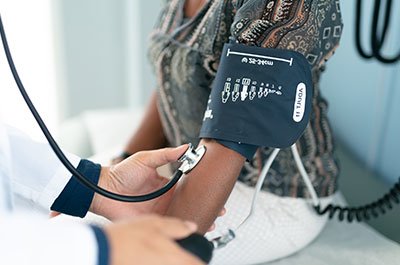In the past few years, the American Heart Association and the American College of Cardiology have updated their blood pressure guidelines – lowering the threshold for high blood pressure (hypertension) from 140/90 to 130/80. This means that many Americans who were previously considered healthy may now be considered to have elevated blood pressure.
Shalini Modi, M.D., a cardiologist at Henry Ford Health, explains why it is important to understand why these guidelines exist and how increased awareness around blood pressure levels can potentially save lives.
“These guidelines are designed to change the focus from treating heart disease to preventing heart disease in the first place,” says Dr. Modi. “Since we know hypertension is an underlying cause of heart disease and stroke, we can start by educating people about the effects of untreated hypertension – how it can impact the heart, brain, kidneys and vision. It is important to make healthier lifestyle choices to avoid a future diagnosis.”You Have High Blood Pressure, Now What?

Blood pressure refers to the pressure your blood puts on the walls of your arteries as it flows through them. Hypertension occurs when this pressure builds up too much – causing your heart to work harder, weakening the heart muscles over time. The potential for developing hypertension increases as you age.
Other causes of hypertension include smoking, stress, obesity, sleep apnea, lack of physical exercise and excessive sodium intake. The good news is the condition can be reversed by addressing the causes and/or by taking prescribed medication.
“If you have high blood pressure after a couple of readings, the first step is lifestyle modification,” says Dr. Modi. “However, your provider may want to start you on medications depending on your blood pressure readings and your calculated risk for developing heart disease. Often, multiple medications are required to control the blood pressure.”These guidelines place emphasis on the importance of healthy lifestyle changes to improve blood pressure. Dr. Modi recommends focusing on these areas of your life to see a change in your blood pressure levels:
- Healthy diet: Maintain a diet rich in fruits, vegetables, whole grains and low-fat dairy products with reduced saturated and total fat, like the DASH diet.
- Weight loss: Focus on losing excess weight and body fat. Aiming for your ideal body weight is a great goal to set, but losing a relatively small amount of weight (5-10 pounds) can make a difference in the blood pressure levels of most overweight adults.
- Sodium: Pay attention to the food you eat to help reduce your intake of dietary sodium. Less than 1,500 mg per day is the optimal goal, but aim for at least a 1,000 mg/day reduction.
- Potassium: Potassium is found in foods like bananas, white beans, coconut water, sweet potato, spinach and avocado. Increasing your dietary potassium can help relax your blood vessels - causing your blood pressure to decrease. Doctors recommend 3,500-5,000 mg each day.
- Physical activity: Try combining aerobic exercise (like jogging, walking or swimming) with strength or resistance training. The basic recommendation is 90 to 150 minutes a week of aerobic exercise to raise your heart rate and “exercise” your cardiovascular system. It is also recommended to include 90 to 150 minutes of resistance training each week to build strength and muscle.
- Alcohol: Reduce consumption of alcoholic beverages. The recommended daily consumption is no more than 2 drinks for men and 1 drink for women. You might even consider testing out a sober lifestyle.
- Sleep apnea: If you snore, don’t feel fresh after a night’s sleep or feel tired throughout the day, you could have undiagnosed sleep apnea. Left undiagnosed, sleep apnea can increase your blood pressure, putting strain on your cardiovascular system and increasing your risk for heart disease.
This might sound like a lot to change – especially if you are at risk for high blood pressure. Your doctor can help you come up with a plan to get started, but it is up to you to follow through with these changes.
Dr. Modi also suggests that you monitor your blood pressure levels at home and check those readings off the ones that are taken at your doctor’s office.
“It is common for people to experience white coat hypertension (when your blood pressure spikes at the doctor’s office) or masked hypertension (when blood pressure is normal at the doctor’s, but high at home),” says Dr. Modi. “Checking these two readings off each other is imperative that the correct data is utilized to make accurate decisions based on your health.”
Going forward, pay attention to your blood pressure levels and take every opportunity you can to improve your daily habits so you can live a longer, healthier life.
Reviewed by Dr. Shalini Modi, a cardiologist who sees patients at Henry Ford West Bloomfield Hospital.



